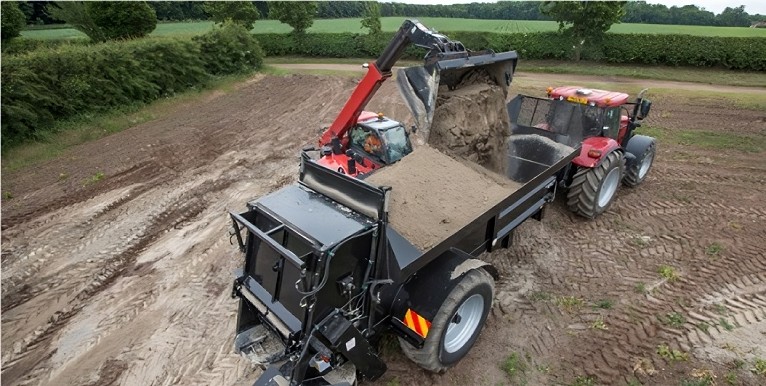LIMEX HELPDESK
Contact LIMEX for free advice:
Need FREE advice?
Talk to the LimeX team

Thu 10 October 2024

Simply due to the different requirements each crop has for specific elements and their threshold for toxicity. pH has a considerable effect on the solubility and, therefore, availability of elements in the soil. Most UK crops have an optimum pH range of between 6-7.5.
The plant's ability to extract nutrients at different pH is referred to as Nutrient Use Efficiency (NUE)
pH is the potential of Hydrogen and refers to the relative concentration of hydrogen ions (H+) in a given solution. In this application, we are considering the soil solution.
When we measure the pH of the soil, it is the H + in the soil solution we are measuring.
The pH scale is a logarithmic scale from 0-14, with seven being neutral. At seven, the solution has a perfect equilibrium between H + and OH - ions. As we move down the scale, the equilibrium shifts as the concentration of H + increases; as we move up the scale, the concentration of OH - ions outweighs the H +.
Due to the scale's logarithmic nature, every sequential number above or below seven is ten times more acidic or alkaline than the previous.

When choosing a liming product, we also need to consider the particle size and reactivity of that product. Particle size and reactivity play a significant role in the effectiveness of a liming product. For example, a ground limestone product may have a neutralising value of 50%. However, if the individual particle size of the grains of limestone is over 1.2mm in diameter, they will break down in the soil exceptionally slowly and will have little impact on the soil PH.
The most reactive and efficient liming products have a particle size of less than 150 microns (0.015mm), making them the highest-quality liming products on the market. The particle size of LimeX is very fine where 100% of the product is smaller than 150 microns. This makes LimeX the most reactive liming product on the market.
![]()
Always check the Aglime Quality Standard (AQS) certificate of agricultural liming products to ensure good neutralising value, particle size, and reactivity.
1. Fine particle size:
LimeX can raise the soil pH within 4-6 weeks, much faster than less reactive products, which can take 6 to 12 months.
2. Additional nutrient value:
Each tonne of LimeX contains 9kg of phosphate, 8kg of magnesium, and 7kg of sulphur.
3. Improved nutrient use efficiency:
Increasing soil pH with lime can potentially increase nitrogen supply by up to 70kg/ha per year.
4. A complete service for correcting soil pH:
LimeX offers soil sampling, recommendations, product supply, delivery, and spreading all in one package.
5. Cost-effective delivery and spreading options:
LimeX provides various affordable delivery and spreading options, including back-loading for sugar beet growers.
Beet growers should contact their Agriculture Manager or visit My British Sugar.
Non-beet growers can request soil sampling by contacting British Sugar Services on 0800 090 2376
Wed 12 February 2025
Conventional wisdom suggests avoiding applying lime before planting potatoes due...